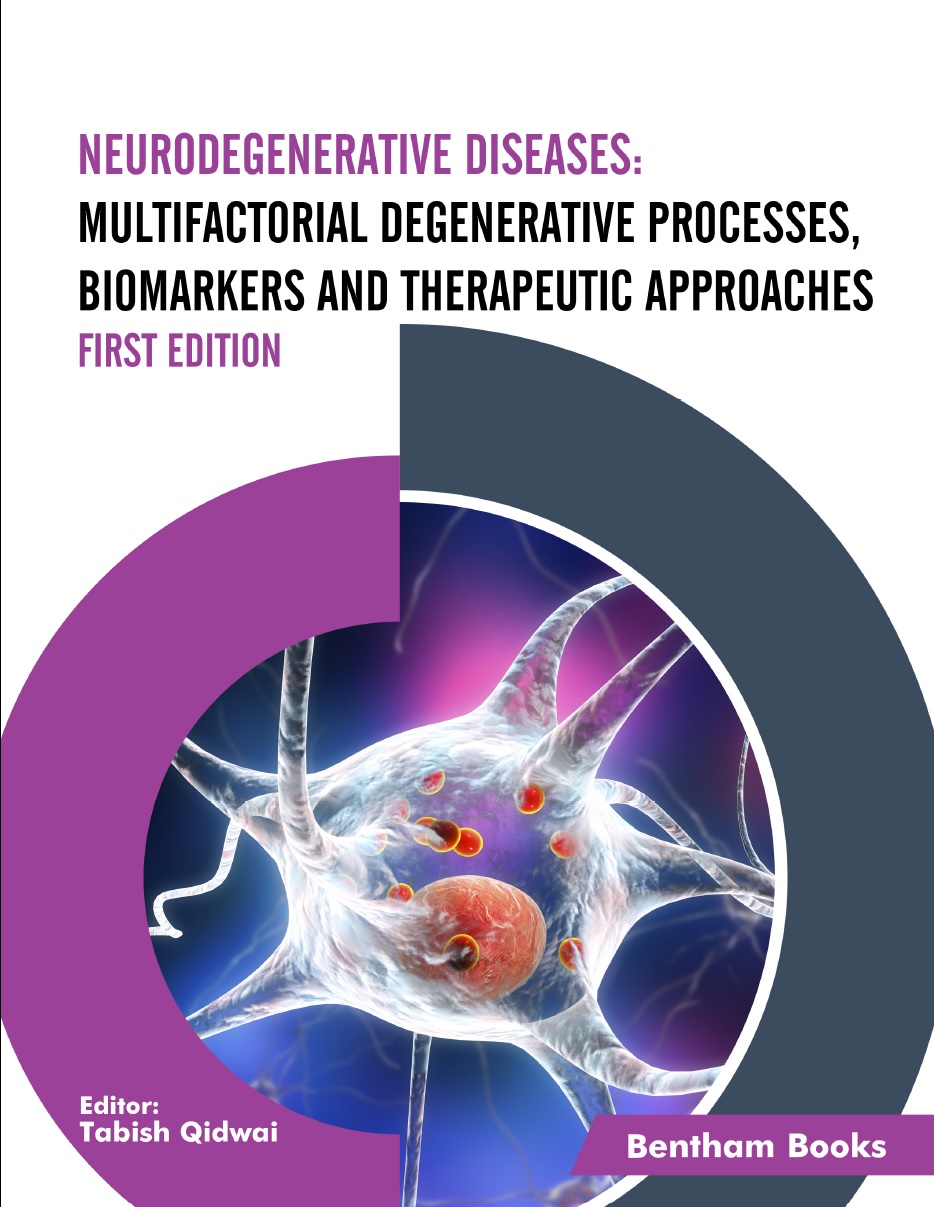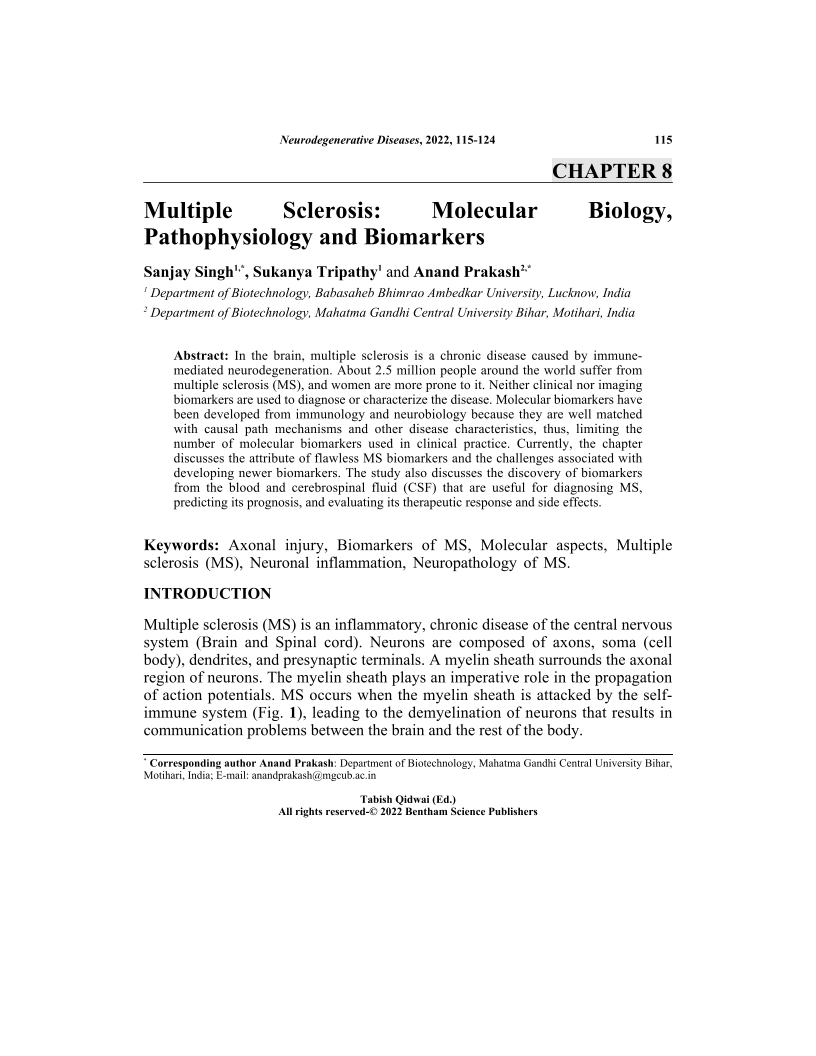Multiple Sclerosis: Molecular Biology, Pathophysiology and Biomarkers

- Authors: Sanjay Singh1, Sukanya Tripathy2, Anand Prakash3
-
View Affiliations Hide Affiliations1 Department of Biotechnology, Babasaheb Bhimrao Ambedkar University, Lucknow, India 2 Department of Biotechnology, Babasaheb Bhimrao Ambedkar University, Lucknow, India 3 Department of Biotechnology, Mahatma Gandhi Central University Bihar, Motihari, India
- Source: Neurodegenerative Diseases: Multifactorial Degenerative Processes, Biomarkers and Therapeutic Approaches , pp 115-124
- Publication Date: August 2022
- Language: English
Multiple Sclerosis: Molecular Biology, Pathophysiology and Biomarkers, Page 1 of 1
< Previous page | Next page > /docserver/preview/fulltext/9789815040913/chap8-1.gif
In the brain, multiple sclerosis is a chronic disease caused by immunemediated neurodegeneration. About 2.5 million people around the world suffer from multiple sclerosis (MS), and women are more prone to it. Neither clinical nor imaging biomarkers are used to diagnose or characterize the disease. Molecular biomarkers have been developed from immunology and neurobiology because they are well matched with causal path mechanisms and other disease characteristics, thus, limiting the number of molecular biomarkers used in clinical practice. Currently, the chapter discusses the attribute of flawless MS biomarkers and the challenges associated with developing newer biomarkers. The study also discusses the discovery of biomarkers from the blood and cerebrospinal fluid (CSF) that are useful for diagnosing MS, predicting its prognosis, and evaluating its therapeutic response and side effects.
-
From This Site
/content/books/9789815040913.chap8dcterms_subject,pub_keyword-contentType:Journal -contentType:Figure -contentType:Table -contentType:SupplementaryData105

